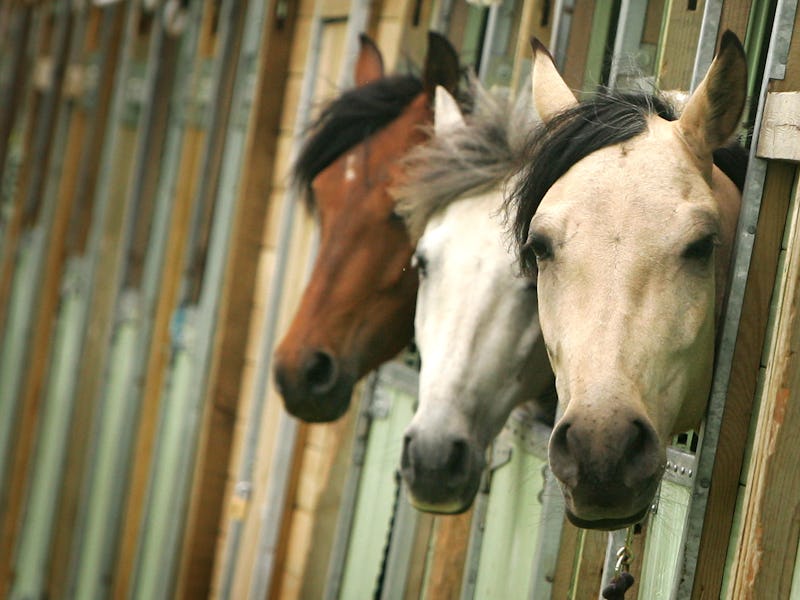New Study Confirms That Horses Can Read Human Emotions
Which means they can definitely tell when they're messing with us.

They might not be able to read minds yet, but a new study from the University of Sussex confirmed today that horses can recognize when you’re mad at them.
The study indicates that horses can tell the difference between happy and angry human emotion, and act accordingly when faced with them. Researchers showed 28 horses photographs of angry faces, and observed both rising heart rates and an increase in stress-related behaviors. The horses also tended to turn to look at the pictures with their left eye, a common behavior in many animals when confronted with a stressful situation.
The study marks the first time facial expressions have had a direct effect on heart rate across the species barrier — the horses were able to recognize a perceived threat from just a photograph of an angry person, with no other stimuli, something researchers haven’t observed in any other animal.
The researchers said the horses had a far milder reaction to photos of happy people. Essentially, the study proves what a lot of horse owners already knew: horses can be jerks sometimes, and they don’t care all that much when you’re happy. This horse, for example:
Still, when they’re not being mischievous, horses’ emotional intelligence is well documented. Equine Assisted Therapy has been popular for years, because proponents say the big, warmblooded animals help people slow down and relax.
It’s no surprise that horses are the first animal to definitively recognize human facial expressions. Horses have been domesticated since 3500 B.C., and Professor Karen McComb, one of the lead researchers, thinks the animals could have evolved an “ancestral ability for reading emotional cues.” Otherwise, McComb thinks it’s possible that individual horses — the 28 subjects came from riding and livery barns in Sussex and Surrey, UK — learned how to read faces in their own lifetime.
“What’s interesting is that accurate assessment of a negative emotion is possible across the species barrier despite the dramatic difference in facial morphology between horses and humans,” McComb said.
But despite the differences of facial morphology, humans love horses: we paint them to protect them from cars, and it’s no mistake that Netflix chose an alcoholic, anthropomorphic horse to explore the dark side of the human experience.
Wherever we go as a species, horses will be along for the ride.